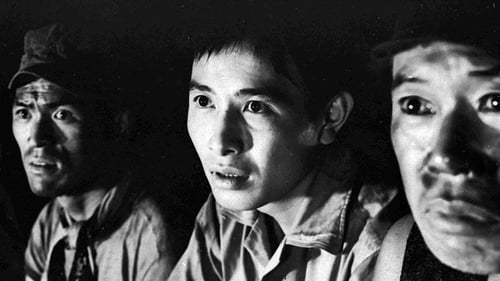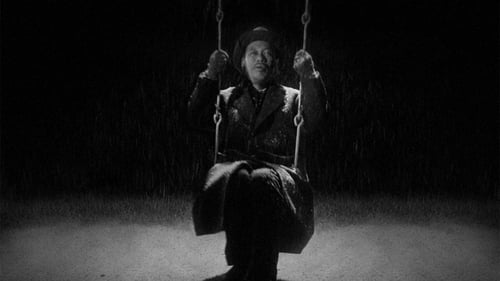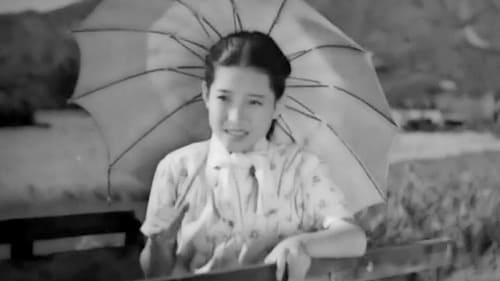Yôyô Kojima
Nacimiento : 1891-12-16, Tokyo, Japan

A sad love story between young Umihiko Kojima and a beautiful girl named Yukiko Shino.

Kaichi Yui
Based on a 1956 television feature on Japan’s national network, NHK, this is one of Uchida’s rarest films. A socially conscious drama with a contemporary backdrop, Dotanba focuses on the attempts to rescue a group of trapped miners. The title is a figure of speech — (essentially “last minute” or “eleventh hour”) — that refers to a situation of peril. The film boasts a script co-written by Uchida and Akira Kurosawa’s frequent screenwriter, Shinobu Hashimoto, and stars Kurosawa’s frequent star Takashi Shimura.

One of the earliest Japanese cop films following a mysterious killing on the last train to Mitaka, Tokyo.

Worker in Sewage Section
Kanji Watanabe es un viejo funcionario público que arrastra una vida monótona y gris; sin embargo, no es consciente del vacío de su existencia hasta que le diagnostican un cáncer incurable. Con la certeza de que el fin de sus días se acerca, surge en él la necesidad de buscarle un sentido a la vida. Y cuando lo consigue se produce un cambio radical en su actitud respecto a los demás.

Jidai-geki about the life of Yasubei Nakayama, a famous ronin who did participate in the revenge against Lord Kira Yoshinaka as detailed in Japan's famous epic Chushingura

A romantic melodrama about the shifting relationship between Ryosuke and Miki as their precarious employment and social circumstances shift around them.

Head teacher
A film by Kiyoshi Saeki

Three humorous love stories set in rural Japan.

A film dealing with the comings and goings of individuals in the immediate postwar period.

The premature death of a young mother serves as inspiration for her husband and son.

Set in Qingdao, China, a Japanese company locates an office there and begins work and cooperation with a local Chinese company for business. Many Japanese engineers also move to China, with their families, for the company in order to construct a canal. There are young Chinese resisting the Japanese in this area.

Tangonokami Shizawa
This epic depicts the battle between Uesugi Kenshin and Takeda Shingen. The focus of the story is the struggle by the unit leader in charge of the main supply wagons and the supply troops to transport materiel to the Uesugi army. To this are added episodes involving an itinerant woman.

A Japanese army engineer (Hasegawa) on the mainland must put his personal feelings for a beautiful Chinese woman (Ri) aside if he is to succeed at building a highway through the "bandit"- (aka anti-Japanese militia-) infested hinterlands.

Jidaigeki from 1940

Enoken's anachronistic take on the beloved (and already very funny) Edo-period novel "Shank's Mare," aka Tōkaidōchū Hizakurige, in which Yaji and Kita, two plebeian nobodies, have all sorts of strange and colorful encounters on the long road from Edo to Kyoto.

Song of the White Orchid was a co-production of Toho and Mantetsu, the railway that served the colonial region of Manchuria, and the first film in the Kazuo Hasegawa/Shirley Yamaguchi (Ri Koran) “Continental Trilogy.” Handsome Hasegawa (representing Japan) runs up against an impertinent Yamaguchi (representing the continent); not surprisingly, in the course of the film the woman comes around and realizes the benevolent intentions of the Japanese. In Song of the White Orchid Yamaguchi leaves Hasegawa, who plays an expatriate working for the railway, because of a misunderstanding. She joins a communist guerilla group plotting to blow up the Manchurian railway. Learning of the subterfuge that led to the misunderstanding, she renews her faith in Hasegawa—and by extension Japan—and tries to undermine the plot.

Hide-chan (Hideko Takamine) and her family are on a trip to Tokyo. While visiting a fairground, a pickpocket (Kamatari Furukawa) steals the father's wallet. While everyone is trying to hunt down the thief, Hide-chan decides to make the most of it and enjoy her stay, while the thief and his main pursuer (Akira Kishii) play hide-and-seek among the funfair's spectacles and freakshows

The prewar film Haha no kyoku (Mother's Melody, 1937) is known for its place in Japanese film history as one of the top three melodramas as well as for its authorship: Yamamoto Satsuo is an auteur not usually associated with filming melodramas. Yamamoto made the film right after he moved, along with his mentor Naruse Mikio, to the Toho film company. A number of subsequent postwar mother's films adopted some of its essences, making it a genre-defining moment in Japanese cinema. This great melodrama is atypical of Yamamoto's output, much of which deals with political corruption and inequities within social institutions and offers a strong anti-establishment appeal.

Story of a bandit king.

Hikoroku Laughs a lot

Schoolmaster
Cuando la cuñada de Kaoru, Miyoko, llega al hogar familiar, emerge entre ellas un fuerte sentimiento que las hace cercanas. Mas esta inefable felicidad que les procuran los momentos que pasan juntas es frustrada por Mitsuo, el marido de Miyoko y hermano de Kaoru. quien constantemente interviene en su relación...

Sahei Sakamoto
The unfortunate Sumiko is sent from place to place: to live with her alcoholic uncle, then sold to the circus, then adopted by a wealthy family, and finally sent to a Christian orphanage.












